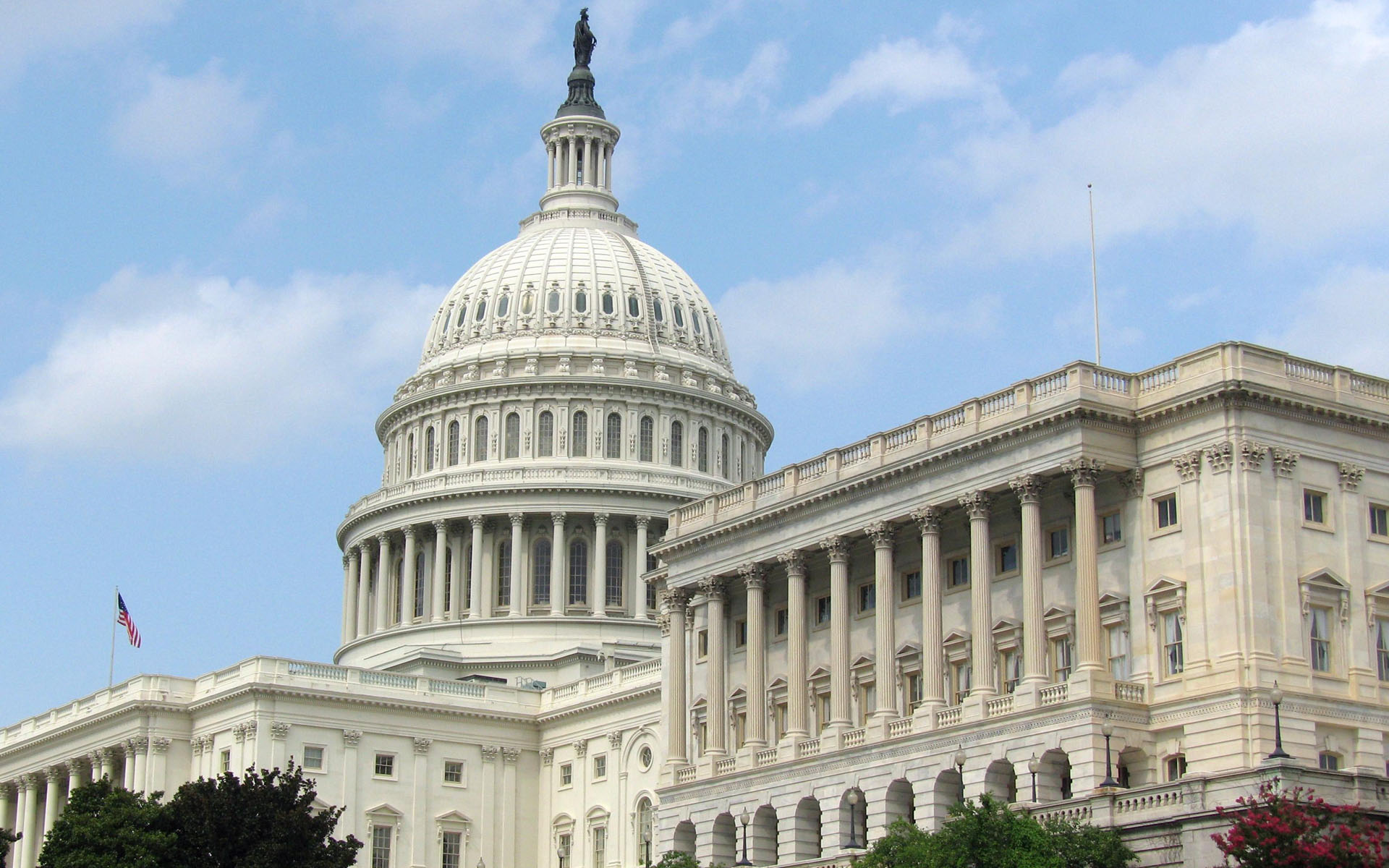
by admin | Dec 5, 2017 | Employee Benefits, Flexible Spending Accounts, IRS
 On November 2, 2017, House Republicans introduced a tax reform bill (H.R.1-115th Congress) called the “Tax Cuts and Jobs Act” that, if passed, would impact multiple aspects of the tax code. Many of these changes relate to employee benefit plans, particularly in relation to certain fringe benefits.
On November 2, 2017, House Republicans introduced a tax reform bill (H.R.1-115th Congress) called the “Tax Cuts and Jobs Act” that, if passed, would impact multiple aspects of the tax code. Many of these changes relate to employee benefit plans, particularly in relation to certain fringe benefits.
Dependent Care Accounts
A dependent care flexible spending account (DCFSA) is a pre-tax benefit account used to pay for eligible dependent care services. The IRS determines which expenses are eligible for reimbursement and these expenses are defined by Internal Revenue Code section 129 and the employer’s plan. Eligible DCFSA expenses include costs for adult day care centers, before and after school programs, child care, nannies, preschool, and summer day camp. Day nursing care, nursing home care, tuition for kindergarten and above, food expenses, and overnight camp are ineligible expenses. The employer determines the minimum election amount and the IRS determines the maximum election amount. The IRS sets the following annual contribution limits for a DCFSA:
- $2,500 per year for a married employee who files a separate tax return
- $5,000 per year for a married employee who files a joint tax return
- $5,000 per year for the head of household
- $5,000 per year for a single employee
The original version of the tax reform bill completely eliminated dependent care accounts. It is now reported that Representative Kevin Brady (R-Texas) has added an amendment to the bill that reverses the immediate repeal of DCFSAs, and would extend them for five more years.
Adoption Assistance
Employers may currently reimburse employees up to $13,570 (indexed) tax-free for qualified adoption expenses. This is eliminated in the bill.
Education Assistance
Employers may currently reimburse employees up to $5,250 on a tax-free basis for qualified education expenses. This is eliminated in the bill. Employers that are educational institutions can currently provide qualified tuition reductions to employees, their spouses, and dependents tax free, but this would be eliminated under the bill.
Employer Tax Deduction Impact
Under the proposed bill, employers’ corporate tax deduction credits for the following would be eliminated:
- Transportation fringe benefits
- On-premise athletic facilities
- Employer provided child care
The bill is now in markup, with the Ways and Means Committee working to draft a final bill for the House to vote on. If passed, it will be sent to the Senate to vote on.
By Danielle Capilla
Originally Published By United Benefit Advisors

by admin | Sep 8, 2017 | Flexible Spending Accounts, Human Resources
 A dependent care flexible spending account (DCFSA) is a pre-tax benefit account used to pay for eligible dependent care services. The IRS determines which expenses are eligible for reimbursement and these expenses are defined by Internal Revenue Code §129 and the employer’s plan. Eligible DCFSA expenses include: adult day care center, before/after school programs, child care, nanny, preschool, and summer day camp. Day nursing care, nursing home care, tuition for kindergarten and above, food expenses, and overnight camp are ineligible expenses.
A dependent care flexible spending account (DCFSA) is a pre-tax benefit account used to pay for eligible dependent care services. The IRS determines which expenses are eligible for reimbursement and these expenses are defined by Internal Revenue Code §129 and the employer’s plan. Eligible DCFSA expenses include: adult day care center, before/after school programs, child care, nanny, preschool, and summer day camp. Day nursing care, nursing home care, tuition for kindergarten and above, food expenses, and overnight camp are ineligible expenses.
Qualifying Individuals
Only qualifying individuals are eligible for dependent care expenses. A qualifying individual is an individual who spends at least eight hours in the participant’s home.
Dependent care includes care for a child who is under the age of 13 and in the participant’s custody for more than half the year. Dependent care also includes care for a spouse or relative who is physically or mentally incapable of self-care and lives in the participant’s home.
If parents are divorced, then the child is a qualified dependent of the custodial parent. A non-custodial parent cannot be reimbursed under a DCFSA even if the parent claims the child as a tax dependent.
Contributing to a DCFSA
The election is the participant’s contribution amount, which is the amount the participant puts into a DCFSA at enrollment. Participants may change the amount of money to be withheld within a 31-day window after a qualifying event, such as marriage, birth or adoption of a child, dependent death, divorce, or change in employment. Participants may enroll in or renew their election in a DCFSA during open enrollment. Participation is not automatic. Participants must re-enroll every year by the enrollment date.
The employer determines the minimum election amount and the IRS determines the maximum election amount. The IRS sets the following annual contribution limits for a DCFSA:
- $2,500 per year for a married employee who files a separate tax return
- $5,000 per year for a married employee who files a joint tax return
- $5,000 per year for the head of household
- $5,000 per year for a single employee
Even though a different maximum contribution limit may apply depending on the employer’s plan, the maximum contribution cannot exceed the following earned income limitations:
- If you are single, the earned income limit is your salary, excluding contributions to your DCFSA.
- If you are married, the earned income limit is the lesser of: your salary, excluding contributions to your DCFSA, or your spouse’s salary.
All DCFSA contributions are subject to IRS use-it-or-lose-it rules, which means that unused funds within the plan year will be forfeited to the employer unless the employer’s plan offers a grace period extension. Some plans include a two-and-a-half-month grace period.
Participants must report their DCFSA contributions on their federal tax return along with the name, address, and Social Security number (if applicable) of the dependent care service provider.
Reimbursement Requests
A valid DCFSA claim will either have the dependent care provider certify the service by signing the claim form or have the participant provide an itemized statement from the dependent care provider that includes the following: service dates, dependent’s name, type of service, amount billed, and the provider’s name and address along with a completed claim form.
Participants should save supporting documentation related to their DCFSA expenses and claims because the IRS may request itemized receipts to verify the eligibility of their expenses.
By Danielle Capilla
Originally Published By United Benefit Advisors

 On November 2, 2017, House Republicans introduced a tax reform bill (H.R.1-115th Congress) called the “Tax Cuts and Jobs Act” that, if passed, would impact multiple aspects of the tax code. Many of these changes relate to employee benefit plans, particularly in relation to certain fringe benefits.
On November 2, 2017, House Republicans introduced a tax reform bill (H.R.1-115th Congress) called the “Tax Cuts and Jobs Act” that, if passed, would impact multiple aspects of the tax code. Many of these changes relate to employee benefit plans, particularly in relation to certain fringe benefits.
